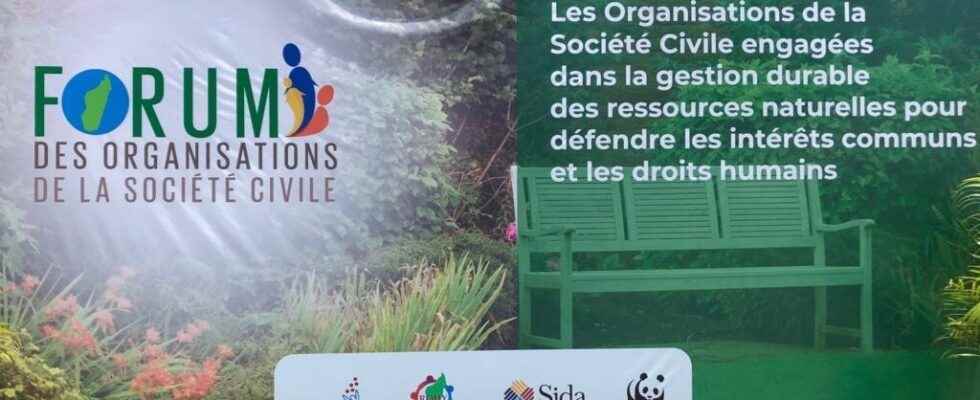About fifty civil society organizations gathered in the Malagasy capital, Antananarivo, for three days. Coming from all over the island, they are organizing a forum on the sustainable management of natural resources and the defense of human rights. The opportunity to hear the voices of women and men from local grassroots communities who fight daily to protect the island’s natural resources and to restore forests and mangroves.
With our correspondent in Antananarivo, Laetitia Bezain
In the aisles of the forum, the capital role of the VOI (Volondron’Olona Ifotony) is highlighted. These associations of members of local communities are committed to the protection of the natural resources that surround them. A fight against the destruction of the environment with often few means, testifies Tombozoky Jaoriziky, 29, patroller in the park of Nosy Hara, off the northwest coast of Madagascar. ” We protect these species that you see there: sea turtles, birds like fish eagles and terns. We also protect their eggs. We ensure that the fishing ban is respected when it is no longer the period. But it is very difficult work. We use a small motor boat while the criminals have sophisticated equipment. Their network is very strong. We often receive threats and the value of our work sometimes lacks recognition. »
Environmental activists in danger
Pressures, legal harassment and even assassinations, the dangers are numerous and justice is not very severe with environmental criminals, denounces civil society. ” In almost the entire Menabe region, many portions of dry forests are destroyed, explains Alexandros Marignandro, technical manager of the federation of 54 VOIs in the Menabe region, in the west of the island.. Mangroves are also affected. Without the VOIs, there would be nothing. Recently, we restored 500 hectares of mangrove. But when someone is intercepted destroying the forest, officials are often afraid to enforce the law. In our country, two presidents of VOI were killed for having protected the forest. That’s why some members give up. There are reprisals from criminals and traffickers. This is why we are asking the State to take its responsibilities because the power it has for us has its limits. What we are asking is to protect whistleblowers. »
A law on the protection of human rights defenders and whistleblowers whose adoption has been demanded for several months by civil society.
Last June, the environmental activist, Henri Rakotoarisoa70, who for several years had denounced illegal logging in a primary forest near Moramanga, in the east of the country, was brutally murdered by traffickers.
► Read also: Madagascar: making biodiversity a driver of economic and social development
